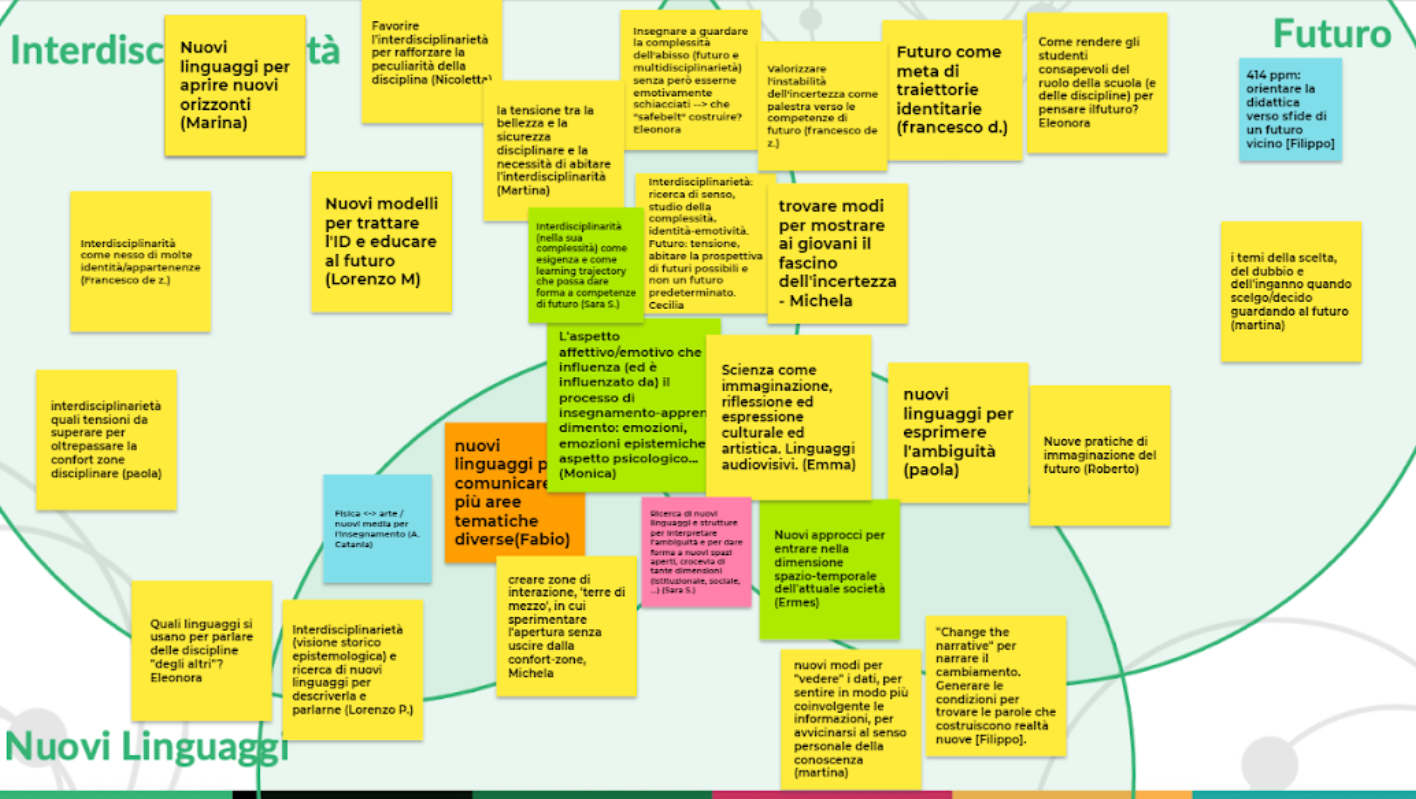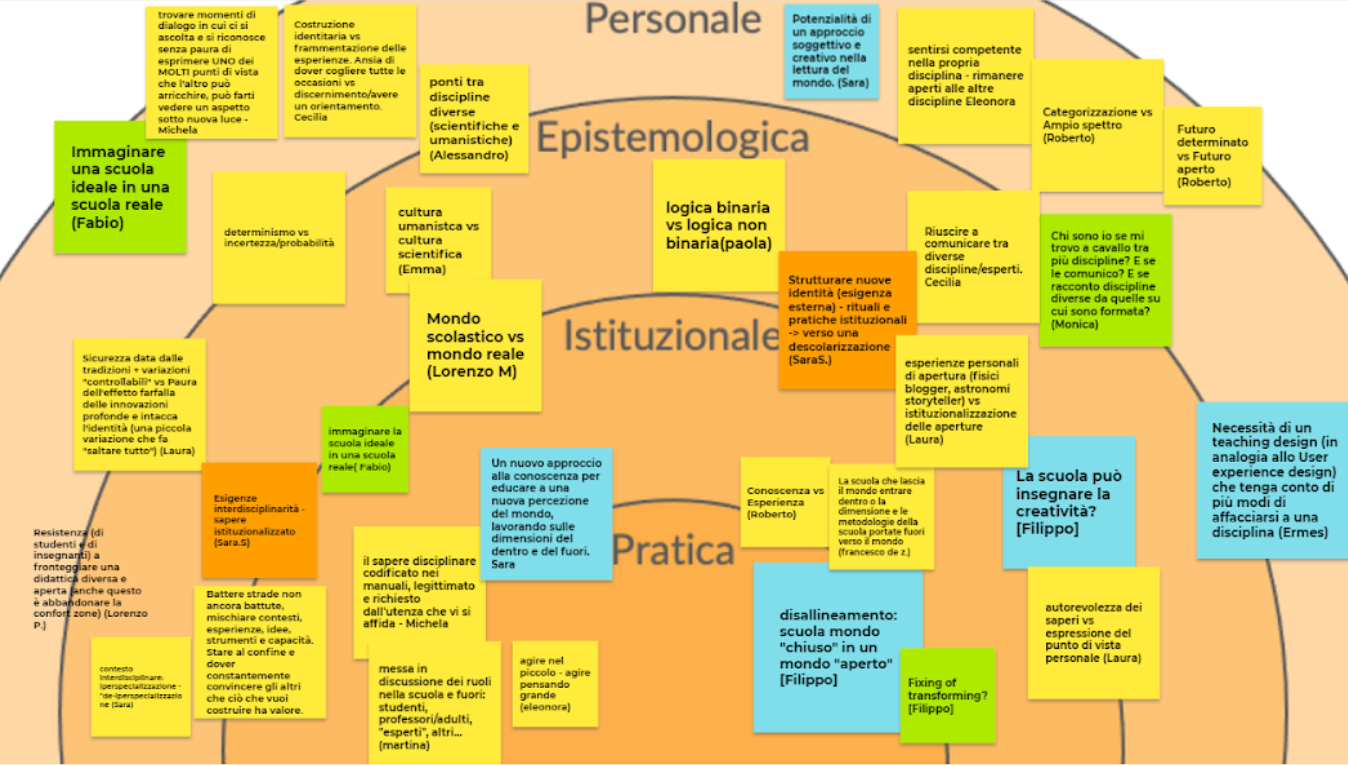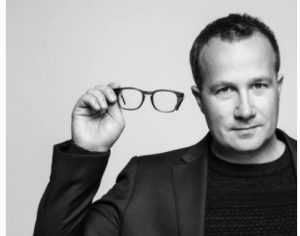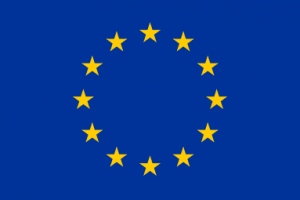This is a story about an event that happened not so long ago, which ripples are reaching further...Let's recap. Thursday, May 19 at the scientific “Liceo” A. Einstein in Rimini: the final event of a laboratory “Quantum Atelier” took place. The project was born as a result of the PLS – Piano Lauree Scientifiche – a course on the Second Quantum Revolution hosted by the high school and the need of finding new languages, in particular, evocative, personal, and new artistic forms to "talk" about the two quantum revolutions. The Quantum Atelier involved six students in their last school year and four teachers of different disciplines that gave rise, in full FEDORA style, to a model of relationship that has allowed to break down the institutional and emotional barriers that sometimes make the interaction between teachers of different disciplines and between teachers and students very complex and demanding. Furthermore, the Quantum Atelier challenged and paved the way to rethink the standard way to conceive the arts as a tool to communicate science, breaking this functional relationship and opening the possibility to design languages and aesthetics in which the first purpose is not to teach content but to foster a mutual enrichment that poses new questions to rethink this relationship.
The day, which was also the final event of the Italian quantum week organised by the Department of Physics and Astronomy, lasted two hours and included several speakers in its programme. After a presentation of the Italian Quantum Week by theoretical physicist Elisa Ercolessi, Francesco Minardi, an experimental physicist at the University of Bologna, presented the passage from the first to the second quantum revolution following one of the two greatest mysteries of quantum physics, the entanglement. After the introduction of the project FEDORA by Sara Satanassi, the stage was left to the protagonists: first teachers Maurizio Giuseppucci (teacher in Italian and Latin), Michela Clementi, Paola Fantini, and Fabio Filippo (teachers in Mathematics and Physics) who presented the Quantum Atelier as an experience, and then to the students who presented the works.
The Quantum Atelier has marked a step forward for the FEDORA project and we will continue to work with teachers and students to rethink new languages and extrapolate the model of interaction and relationship implemented.
Soon it's going to be a year since we had the opportunity to listen and talk with Andri Magnusson, the Icelandic writer who has taken as a personal quest the protection of glaciers by employing a very simple yet powerful and deep tool: language and narratives. His last and most famous book, "On time and water" conveys a collection of messages, stories and knowledge from unknown times that flow together as in a river, making our understanding blossom and provoking a sense of strange-making that feels familiar. And here I say "feels" because, through his words, data becomes much more than a number, but a call to action, a pair of hands shaking our shoulders, an awakening light. The melting glaciers, our sleepy answers to what nature is showing us, and our inability for a radical decision to make the temperature sink are some of the pictures we face while reading his stories.
Andri reflects on this lack of languages, which is making us pay a high price: the apathy and lack of empathy can be explained by a lack of understanding and therefore, his claim for new languages is as loud as the one made by Aldo Leopold a century ago. Leopold could also perceive that our comprehension of cranes and their cry, a trumpet in the orchestra of evolution, was limited and that cranes were symbols of our untamable past. Contemporary artist Christine Sum Kim's huge drawing at the MoMa in NYC, "The sound of temperature rising" also pulls our attention to sounds we are ignoring. Are we losing our hearing capacities as well?
With glaciers being sacred cows, and rivers seen as nurturing milk, Andri invites us to wrap ourselves in the universal blanket of stories, not to bring us to bed but to awaken our hearts and refresh the sense of urgency.
In FEDORA's mid-journey, we have invested time in talking about the gaps and misalignments we see, these unfilled empty holes, the new languages we need to give existence to the set of skills that will help us enhance the comprehension of our powers for shaping the present and the future. People don’t always understand data, but they always understand stories, a scientist told Andri. We are bringing our creative powers into craft work, so we contribute to stories that will be told, heard and embodied by teachers, students and us, researchers.
The interdisciplinary, imaginative, future-oriented nature of the FEDORA project, together with its aim to develop new narratives for science education, were the issues that pushed us to bring together the second quantum revolution with one artistic expression. We proposed a creative writing workshop to a group of 14 upper secondary-school students. They were introduced to the relationship between science and literature and they had to produce a final piece of writing: this allowed us, not only to understand the engraftment of epistemic concepts and new knowledge related to the scientific content at stake, but also to investigate the emotions that arise from being immersed in a time of changes, that we have defined as scientific-technological, social, but also and above all cultural and conceptual.
The request for the production of the written works, therefore, took place downstream of a very rich disciplinary part that started with the history of classical computers and arrived at the inclusion of quantum computers in our contemporary social context, where nations are mobilizing in order to prepare enormous funding for the technological development as a function of what has been called "quantum supremacy". Then, the students were introduced to the quantum language and logic as tools that allow understanding of how the circuits of these new computers work, as well as the applications that will probably be protagonists of our future-present, such as teleportation and quantum random walk, which exploit physical properties such as the superposition principle and quantum entanglement.
In order to prepare students to develop their final work - they had to start with scientific knowledge but be also literary-creative - they were introduced to a framework that underlined some general aspects of the relationship between science and narratives. We have identified two approaches with which science and literature have often interfaced: the diachronic-visionary, linked to technological development and science fiction (“Imagining the future”) and the synchronic-emotional, with which we took the opportunity to probe the fallout culture of the first quantum revolution in contemporary narratives (“Feel the present”). The claim "Imagine the future" was then also translated from an emotional point of view into "Imagine/Feel the future". Why? Because every scientific-technological revolution is also a generational problem, and depending on the generation, you can differently "feel" the advent of change on your skin.
We then asked ourselves about the most appropriate form to investigate the two aspects and the winning idea was to propose to each student the drafting of a letter "Dear future me..." (www.futureme.org). Letters have always been informal, intimate texts, bearers of emotions, secrets, and confidences. Looking at Amaldi's post-war letters to friends and colleagues, we have found how much through the epistolary form we could talk about science and technology, accompanied with thoughts, hints and personal impressions: the epistemic contents linked to a particular historical moment. In addition, addressing the letter to a recipient situated in the future it was natural for the kids to carry their imaginations forward in time, allowing us to investigate how they think, hope or fear the second quantum revolution will. At the same time, the activity created a space for the students to ask themselves questions and, in the best of cases, to project a desirable vision of a possible new order of man-technology-nature.
From the letters we can perceive inner dialogues that mix opposing emotions: there are those who wait trying not to have too many expectations, and there are those who confess the torment linked to uncertainty, but most of the students are open to hope and respond positively to the narration for which the first quantum revolution has made the world fall into indeterminism, while the second will be able to bring into our culture those epistemic and future skills that allow us to harness and, why not, also to ride the uncertainty that marks our times.
Talking about the future in an uncertain present already assumes the value of a promise.
Danijel, 18 years old
Talking about open schooling might seem easier than it actually is. These two words are not difficult ones, but when they come together they unfold a new world of possibilities, that oftentimes, we are not always ready or prepare to grasp.
That´s why events like this one, a one-day workshop at a science engagement conference, the Ecsite conference, are so welcome, especially for our project, which aims to contribute with its deep questions, answers, and ideas to the education that is done daily at schools. I invite you to discover how 5 European projects are doing big and creative efforts to move away from echo chambers and take an active approach to education that is more collaborative and adaptative, and therefore, practising open schooling.
First things first: the workshop was organised by the Open Schooling Together group - a partnership of eight European projects on Open Schooling. The aim was to gain inspiration and reflect together, through a collection of talks, a period of reflection and some practical exercises.
Concepts such as boundaries, co-creation, stakeholders engagement, evaluation and sustainability were part of the conversations. It was clear to me that we had a lot in common.
Each project has its own approach but brings this collage of active hope for an education that embraces the important challenges we face, making students confident about their agency capacity and their possibilities to shape a more inclusive, fair and better social system for everyone.
I invite you to explore, discover the new tools, and get in touch with these projects and hopefully, we will meet at the next meeting of the Open Schooling Together group!
https://www.schoolsaslivinglabs.eu/
https://www.connect-science.net/
What key competencies will be needed for student to address these challenges? How can we integrate future-oriented skills into science education?
Ideas and conversations sparked around those three questions at the first official meeting of Oxford Open Schooling Network (OOSN), on November the 3rd 2021. The event was hosted by Dr. Alison Cullinane and Dr. Olga Ioannidou and served as an introduction to FEDORA and the network’s aims and visions. Different stakeholders were invited to participate, including researchers in science education, scientists, secondary school teachers, professionals from informal learning spaces and science centres, and representatives of companies and charities. They meet and start working together to create a shared vision for science education and education in general and theorise possibilities for future orientations in science. The questions targeted participants’ views on future challenges, future skills, as well as ways of integrating these skills into science curricula.
After the interactive activity participants were encouraged to explain their views and discussed further needs, barriers and potential issues regarding the implementation of their ideas.
The network, that has been established and led by University of Oxford (which involves Professor Sibel Erduran, Dr Olga Ioannidou, Dr Alison Cullinane and Dr Liam Guilfoyle as the research team), its just at the beginning of its journey. The future steps includes a second meeting that will be held on January, production of teaching modules in February and completion of 1st implementation within June.
Continue to follow FEDORA’s website for news and updates on Open-schooling projects!
Themes of future, interdisciplinarity, languages and narratives in education were discussed at the first official Helsinki Open Schooling Network (HOSN) meeting, last September. Experts from different fields and backgrounds meet up and brainstormed lots of interesting ideas. Among those a special one emerged and was explored in depth: a science course module on the topic of carbon neutrality and the city of the future.
Over last spring, the Helsinki FEDORA team had worked hardly to recruit a diverse group of 12 experts into what would become the HOSN. Alongside the Helsinki FEDORA team it includes policymakers, researchers, university educators, teachers and one principal. They were initially invited to reflect on newest FEDORA materials on the ‘three blind spots’ and then meet at the first official meeting on 10th of September 2021. Although it was originally planned as a full-day workshop in the idyllic Helsinki archipelago, just as ferry timetables were matched with plans for the workshop, the regional covid rates began climbing, and an online seminar was agreed on instead.
A large number of ideas came up and after the meeting was concluded, the implementing teacher partners stayed to collect them and reflect on the existing practical constraints. Through this discussion, as we anticipated at the start of this article, a final idea started to take shape: an upper-secondary science course module centred on the topic of carbon neutrality and the city of the future. Planning this module is now underway, with the full HOSN commenting on the developing plans. The module will include experts coaching students to make sense of the complexity of topics like sustainability, energy transitions, urban planning and science-technology-society interactions. It will utilise future-oriented pedagogies developed within the I SEE project. As befits the complexity of the topic of the course, the process of its development has been nonlinear, with the diverse composition of the HOSN providing an environment for collaborative creativity.
The first lesson will take place in early February. Until then, the implementing teachers and the FEDORA team will be dedicatedly expanding on the current plans.
We can say that, despite the challenges of the pandemic era, the network has been successful so far. Based on this experience, it seems that ‘no plan is an island, entire of itself’...
Stay tuned to hear more about our plans for teaching the young to imagine and contribute to creating the city of the future!
What’s an “open school”? What does it mean to open the school system to the world and vice versa what does it mean to bring the world into schools? What it needs to be “opened”? Buildings, activities, people, disciplines, schedules, programs?
On November the 16th FEDORA invited people with very different backgrounds, skills and visions to take a break from the world frenzy and get together in order to reflect on those questions and get inspired by each other personal experiences.
As defined by the EU, Open schooling aims to support a range of activities based on collaboration between formal, non-formal and informal science education providers. This is why didactics researchers, teachers, philosophers, mathematicians, science communicators, videomakers, language experts, bloggers and other professionals joined online at FEDORA’s "Italian Open schooling Kick-off meeting” with the purpose of forming a network that will work together to design and implement “open schooling” activities and projects. These will fit with FEDORA’s main themes: interdisciplinarity, future and new languages.

The European project SEAS - Science Education for Action and Engagement towards Sustainability, from which FEDORA inherit some learnings and frameworks, identified among “open schooling” characteristics the willingness to make schools centres a model for a new idea of society and vehicles of social promotion and innovation. FEDORA, like SEAS, believes that schools should be a vehicle for change. But which kind of change? Participants reflected on four different levels [O’Brien and Sygna, 2013]: practical, institutional, epistemological and personal.

Three different projects (in progress or just finished) are the result of a reflection of this kind:
But that was just the beginning! Between January and May, specific meetings for schools wishing to deepen tools already implemented and other meetings for the exploration of new activities will take place.
The network will meet again to share their experiences on FEDORA’s second open schooling meeting that will be held on June. Stay tuned!
“How do you talk about something that is bigger than language? What words do you choose when a scientist shows you how everything will change in the next 100 years? How the glaciers will vanish, and become the ocean, how the ocean will rise and swallow coastal areas, while the pH of the oceans, the acidity will change more than it has in the previous 50 million years? How do you understand 50 million years? How do you understand that 0.3 in the logarithmic scale of the pH levels? 50 million years are too big to register, 0.3 in pH too small and abstract to understand. A person born today can measure in his lifetime greater changes in the oceans than, not only the whole evolution of man but ten times that. Such change is not just historical, you could say it’s mythological”.
-Andri Snær Magnason, The white noise of climate change.
(The language of climate change), in Levrini O., Tasquier G., Amin T., Branchetti L., Levin M. (Eds.) (2021) Engaging with Contemporary Challenges through Science Education Research: Selected Papers from the ESERA 2019 Conference. Springer Springer Nature Switzerland AG

One year after its beginning, the FEDORA partnership organises the first International Event to publicly present the project.
For this occasion, we have invited the Icelandic writer Andri Snær Magnason whose work has been deeply inspiring to FEDORA's research. With its books and documentaries, the writer is providing a great contribution to describing the graveness of the global changes that are impacting not only the climate and our material lives but also our same imagination and the ways that humans have elaborated to think and describe changes.
The author, internationally renowned, whose books have been published in more than 20 languages, will give an online conference on Tuesday, September 14th (4.30-6.30 pm CEST). The event is organized by the FEDORA partnership and is hosted by the Department of Physics and Astronomy “A. Righi” of the University of Bologna (Italy) as part of the program of a summer school on storytelling in science titled “Officina di Narrazione della Scienza” (Laboratory for the Narrative of Science). The event will be held in English.
During the conference, Andri Snær Magnason will conduct the audience in a journey “On Time and Water”, as his last work is titled, showing the power of the narratives and imagination to understand “something that is bigger than language”. Indeed, as he writes in his abstract of the seminar “During the next 100 years we expect to see a fundamental change of all the elements of water on our planet. Many glaciers will melt and the sea levels will rise at a faster rate than has been seen before. Acidification will bring the oceans to a pH level not seen in 30 million years. Patterns of rain and snow will change dramatically in most areas. We could say that nature is not changing in geological speed anymore but entering human speed. This extreme shift is larger than any metaphor or any words or language we are used to. We could say that this issue is so large that it swallows all words and meaning. We hear words like “climate change” but for most people, they are just white noise, 99% of the real meaning is not included in our imagination. To describe a black hole you look at the surrounding galaxies and to understand these issues Andri weaves a web of stories from mythology, to his grandmother’s honeymoon on Europe’s largest glacier, to our understanding of our intimate time. The huge narrative emerging from this web of stories should be a source of inspiration and motivation for all scientific studies in the next decades.”
After the welcome from the Director of the Department of Physics and Astronomy, Andrea Cimatti, and before the talk of Andri Snær Magnason, the coordinator of FEDORA, Olivia Levrini, will introduce the core ideas of the project. The event will be closed with a contribution by Sibel Erduran, local coordinator in FEDORA of the University of Oxford and president of the European Science Education Researchers Association (ESERA). She will provide points for reflection about the connections between Magnason’s work and the latest advances in science education research.
The speakers will then be happy to receive comments and questions.
Program
Practical information
The participation is free of charge after registering at this link. The event can be attended either remotely or face-to-face (Aula Magna, Department of Physics and Astronomy “A. Righi”, Via Irnerio 46, Bologna, 100 people maximum and with the COVID-19 green pass). During the registration, the participant can choose the preferred modality and will receive the instruction for the online
Biographical notes
Andri Snær Magnason is an Icelandic writer born in Reykjavik. His book, On Time and Water is coming out in 32 languages in 2020 and 2021, exploring the language of climate change and why data and science have not reached our souls or policy. Andri is a writer of fiction, non-fiction, poetry, plays and documentary films. His book LoveStar won the Philip K. Dick special citation in 2014 and Le Grand Prix de l’Imaginaire in France 2016. His children’s book, The Story of the Blue Planet was the first children’s book to win the Icelandic literary award and has been published in 32 languages. His book Dreamland, a Self Help Manual for a Frightened Nation has contributed to a new energy policy in Iceland and the vision of the Highland National Park in the Central Highlands of Iceland. Andri Snær Magnason ran for president in Iceland in 2016 and came third in the election. His documentary films, Dreamland, The Hero's Journey to the Third Pole and Apausalypse have travelled to film festivals worldwide.
FEDORA is proud to launch its new communications product: a sweet and nice video that presents in two and a half minutes what is the project about and why is it so relevant.
We hope you will like it and share it among your networks!
